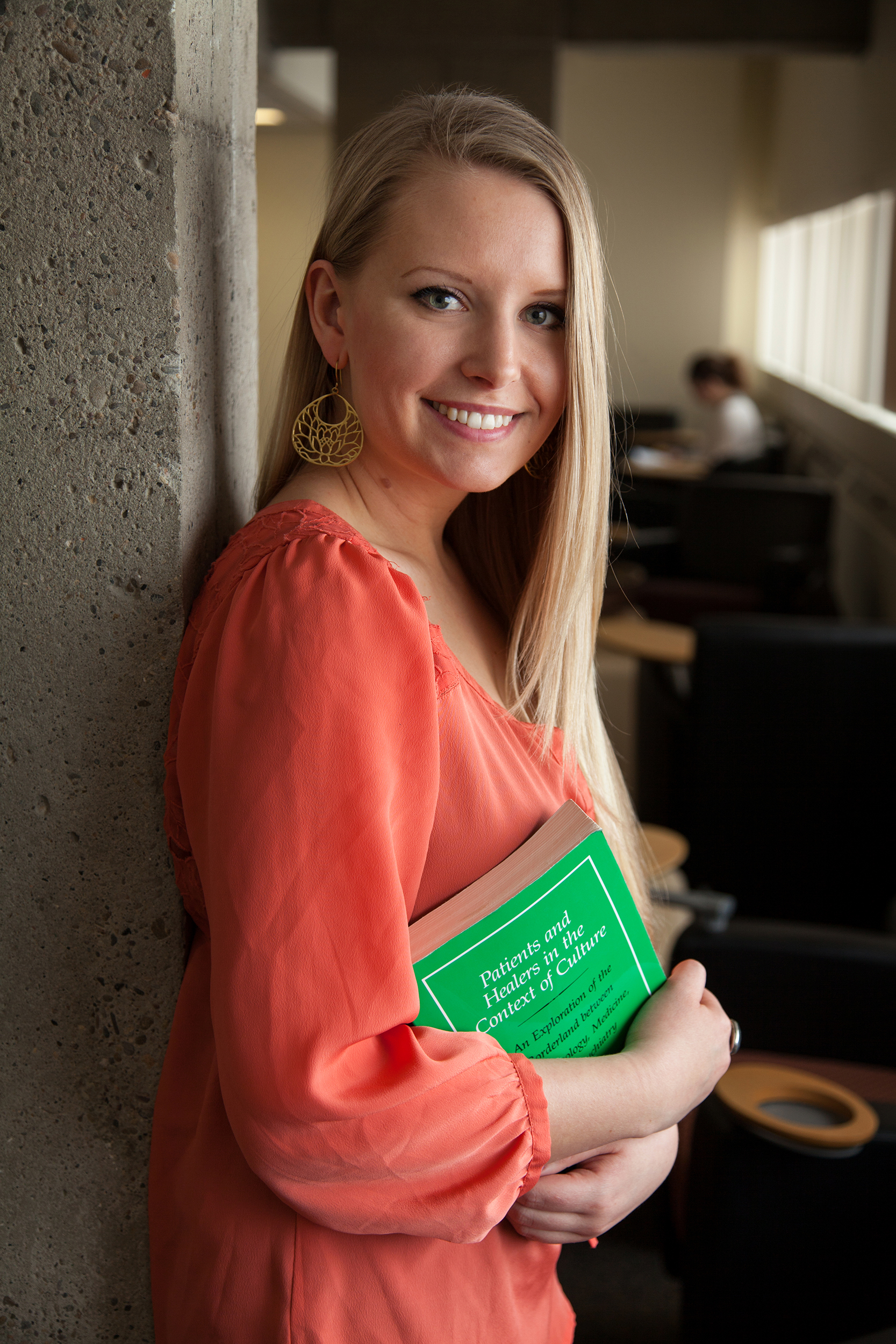Some parents reject standard medical vaccines for their children, but little is known about their reasons. That is about to change thanks to a University of Lethbridge graduate student who is studying the trend locally.

Jillian King (BASc ’12, having previously completed a bachelor’s degree in psychology and religious studies) is exploring the decisions of some families living in or near Lethbridge about whether or not to immunize their kids against diseases such as measles, mumps, rubella and other preventable infectious diseases. She is interested in the attitudes of pro- and anti-vaccination families, and in the biomedical alternatives being pursued by those in the latter group.
“This is something public health officials are concerned about, so I want to explore why parents are choosing to explore more natural ways of dealing with immune health as opposed to getting immunizations,” says King, who is now completing an Individualized Multi-Disciplinary Master of Arts degree with a concentration in anthropology and public health.
The research is one of the biggest academic projects of King’s education at the U of L. The Calgary native chose the University for its relatively small size and the opportunity to study away from home, and stayed because of the high-quality academics and supportive professors. It was an undergraduate anthropology course that first sparked her interest in medical anthropology, the study of human health, health care systems and biocultural adaptation. Now, her professor from that course, Dr. Steve Ferzacca, is overseeing her master’s research.
“He’s extremely supportive, and I’ve been getting a lot of useful guidance from him on how to develop and pursue this topic,” King says.
This cross-discipline interaction was facilitated by the university’s Institute for Child and Youth Studies, or I-CYS, a multidisciplinary research institution that promotes collaboration between those in the academic disciplines, such as: history, anthropology, literary studies, psychology, neuroscience, and education. King has been involved with I-CYS in several ways: she serves on its advisory committee; designed the institute’s website and newsletter; and has also organized “friendly feedback” sessions in which students can present their research projects to I-CYS faculty members to gain diverse insights.
“Being part of I-CYS has been really useful, because I’ve been able to learn from experienced professors from other disciplines, including those involved child immune studies,” King says. “I think we often get stuck in the thinking of our own disciplines, and being a part of I-CYS helps you think about your research from different perspectives.”
In her research, King has learned that the proportion of Albertans who are adequately immunized has consistently fallen below provincial targets for years. As well, the province still has cases of vaccine-preventable diseases, including whooping cough, invasive pneumococcal disease and invasive meningococcal disease. She plans to interview 20 parents of children under age 6 who either support or oppose immunization, and has so far spoken with 15. In some cases involving anti-vaccination parents, a health issue with a first child perceived as being caused by a vaccine prevented them from immunizing their additional children; others in this camp said they believe in the disease-fighting powers of natural interventions, such as chiropractic, vitamins and a healthy diet (she also wants to speak with families using naturopathy or acupuncture as alternatives). King is also studying conversations of pro- and anti-vaccination families in Facebook groups.
“I think there is a lot of misunderstanding and possibly misrepresentation about this issue,” says King, who graduates in January. “So I think it’s useful to have an understanding of the parental perceptions and practices, and to add an ethnographic perspective to the literature.”

